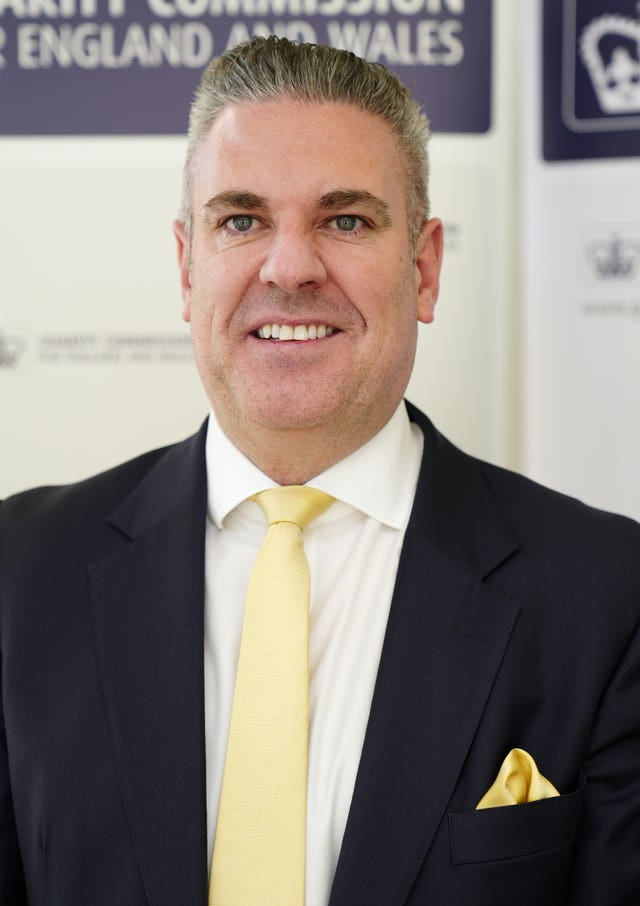It is one of more than 300 cases involving charities in the past 18 months related to the Middle East conflict, the regulator said.
An Islamic charity in Britain has been given a formal warning and one of its trustees disqualified after an “inflammatory and divisive” sermon about Muslims and Jews in the days after the October 7 Hamas attacks.
Language in the sermon included “the hour will not begin until the Muslims fight the Jews and the Muslims will kill them until a Jew hides behind a rock or a tree” and attendees were encouraged not to “busy yourselves with politics and voting”, the Charity Commission said.
It is one of more than 300 cases involving charities in the past 18 months related to the Middle East conflict, the regulator – which operates across England and Wales – said.
The latest case involved Nottingham Islam Information Point, a charity said to provide support to victims of Islamophobic attacks and address misconceptions about the religion of Islam.
But a sermon, given on October 13 2023 by trustee Harun Abdur Rashid Holmes “did not further the charity’s purposes, including to provide relief to those in need, and was not in the charity’s best interests”, therefore amounting to misconduct and/or mismanagement, the regulator said.
Mr Holmes, who is not a trained imam, was deemed not to have acted in accordance with his duties as a trustee and was disqualified in July last year.
He is prevented from holding any senior management position in a charity in England and Wales for three years – and noted by the commission to lack the good judgement expected of a trustee.
While the charities watchdog said it recognised some of the sermon’s content had come from a specific hadith – a narration of historical events ascribed to the prophet Mohammed – the appropriate context was not given and it therefore was “inflammatory and divisive”.
The regulator also said “no consideration” had been given to the timing of the sermon, coming six days after the October 7 Hamas attacks in Israel.
The commission said Mr Holmes had accepted that, with hindsight, the hadith was sensitive, and that he had not given sufficient context to it.
The commission’s assistant director of investigations and compliance, Stephen Roake, said: “In times of conflict, people expect charities to bring people together, not to stoke division. In this case, we found due consideration had not been given to the words and rhetoric used.
“The sermon was inflammatory and divisive, and we acted robustly and disqualified the trustee who gave the sermon. We also issued the charity with a formal warning.
“Following our intervention, the charity’s remaining trustees have taken positive steps to improve their governance. This includes the introduction of a more robust events policy. All charities that host events and speakers should take note of this case and ensure they have sufficient due diligence in place.”
Nottingham Islam Information Point has been contacted for comment.
Charity Commission chief executive David Holdsworth said some people are undermining charities’ “potential for good” in an opinion piece for the Sunday Telegraph.
“Over the past few years, and particularly since the escalation of conflict in the Middle East in October 2023, we have seen charities misused to promote the personal views of those linked to the charity, in some cases inciting hate, or condoning violence,” Mr Holdsworth wrote.
“While trustees, like all of us, have personal rights to freedom of speech, there can be no hiding place for those who seek to use charities to promote hate or harm to others.

“This is not only to put a stop to fundamentally uncharitable activity, but also to help protect and promote public trust in the wider charitable sector.
“I will not shy away from using the more robust powers Parliament has granted us when that is necessary, and taking action against those who risk undermining the incredible positive impact of charities at home and abroad,” he added.
Of the 300 cases considered since the end of 2023 in relation to what is happening in the Middle East, about a third have resulted in formal statutory guidance being issued by the commission.
More than 70 referrals to the police have been made where the regulator considered that a criminal offence might have been committed.
In January, a London charity was handed an official warning after fundraising for a soldier in the Israel Defence Forces (IDF).
The Chabad Lubavitch Centres North East London and Essex Ltd, which describes itself as working for the advancement of the Orthodox Jewish religion, raised more than £2,000 after setting up an online page in October 2023 for a soldier stationed in northern Israel.
Some £937 was sent directly to an individual soldier but the commission said the trustees of the charity were unable to account for how the money was spent and the regulator concluded the charity’s actions had amounted to misconduct and a breach of trust.
While charities in England and Wales can legally raise funds to support the UK armed forces, they cannot legally provide aid or military supplies to any foreign armed force, the commission said.
It was believed to be the first time the regulator had used its powers to issue an official warning on the issue of fundraising for a foreign military.
The case was not one among those referred to police, as the commission said its unlawfulness related to charity law rather than criminal law.

